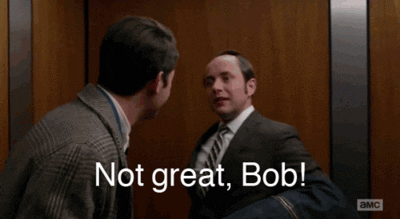Feeling Cursed?
Break it with kindness
My favorite silly curses of all time involve sports. The first was the curse of the billy goat. The second is the Madden curse. Those are relatively lighthearted. There are plenty of serious ones too:
The 27: a number of artists, Kurt Cobain, Jimi Hendrix, and Janis Joplin all died at 27.
The Hope Diamond: whose wearers all had their lives ended with gruesome deaths. Now on display in the United States, I would advise against bidding on it.
The Superman: after the original creators were denied rights and money, they cursed the character. A number of actors and actresses that were in future Superman productions died young or were horribly injured.
Most of them are more coincidence than accursed, yet we as humans find connection with curses, those involving the world around us or even in our own lives. When we have a string of bad incidents that take place, we look for a common thread that could explain the mysterious link behind them.
Curses are also ancient and certainly found in the Jewish tradition but not in the way we think about them. They are clearly described in Judaism as the result of our actions. Do bad stuff. You’ll get cursed. Perhaps it doesn’t align with your theology but it’s ever-present and worth investigating for meaning.
In this week’s double portion, Behar-Bechukotai we find the first of two curses in the Torah. It’s considered so painful to hear that the Torah reader reads it in a hushed tone. Bad stuff ensues: misery, skies raining iron, cities ruined, and sanctuaries made desolate.
At the end of it, we might expect a solution or obviously comforting series of words. Here is what we get in Leviticus 26:42:
וְזָכַרְתִּ֖י אֶת־בְּרִיתִ֣י יַעֲק֑וֹב וְאַף֩ אֶת־בְּרִיתִ֨י יִצְחָ֜ק וְאַ֨ף אֶת־בְּרִיתִ֧י אַבְרָהָ֛ם אֶזְכֹּ֖ר וְהָאָ֥רֶץ אֶזְכֹּֽר׃
Then will I remember My covenant with Jacob; I will remember also My covenant with Isaac, and also My covenant with Abraham; and I will remember the land.
Memory is powerful in Judaism but in this case, it’s a recalling for God. Oh yeah, I did promise your ancestors safety awhile back. So after all this bad stuff, i’ll reup into that covenant. It’s not wildly comforting!
The Midrash in Vayikra Rabbah(36:6) picks up on this peculiarity, wondering what it’s offering the person feeling the curse when it teaches:
אָמַר אִם רָאִיתָ זְכוּת אָבוֹת שֶׁמָּטָה וּזְכוּת אִמָּהוֹת שֶׁנִּתְמוֹטְטָה לֵךְ וְהִטָּפֵל בַּחֲסָדִים
If you see that the merit of the patriarchs and matriarchs has slipped away, go and attach yourself to acts of kindness
Those promises God made were real, and sometimes we can’t access them or we have lose the connection to them. The Midrash’s advice? Pour out kindness into the world.
Many of us know the lowliness and loneliness of feeling cursed. We want to stay at home. Keep the shades closed. Stay isolated. This piece of wisdom is teaching the exact opposite.
Go out into the world. Pursue hesed. A great translation of that word comes from Rabbi Lord Jonathan Sacks
It is love moralized into gestures of help and understanding, support and friendship: the poetry of everyday life written in the language of simple deeds
At your worst moment, seek others and do goodness.
This perhaps explains the strange pairing of this curse in the Torah with the subject of valuation that comes after it. In short, a person can choose to donate the value of themselves or something in their life to the Temple as a means of a vow. At first glance it doesn’t make sense. Curses followed by this form of offering?
The Baal Ha’turim, Rabbi Jacob ben Asher in the 13th/14th century, noticed something connecting these two sections. In the Torah, between this curse and the one that follows it in Deuteronomy, there are 143 curses. In the section on valuation, the values listed all equal 143. Coincidence? Who knows?
He reasoned that valuation followed a curse to show you that tzedakah was the best way to respond to feeling cursed. Often translated as charity, tzedakah is better understood as giving to others not because it is just, righteous, or that we feel love. Rather, we give because it’s the right thing to do. It’s not subject to the whims of our emotions. We just give.
That feels apt when thinking about how we respond to feeling cursed. Our heart and soul is telling us to stay closed off. Our tradition is lovingly nudging us to step out. Seek out kindnesses. Give to others. Remember that the curse won’t last forever. Through connection with our people, we’ll all find our way out.
Shabbat Shalom and Happy Weekend!


